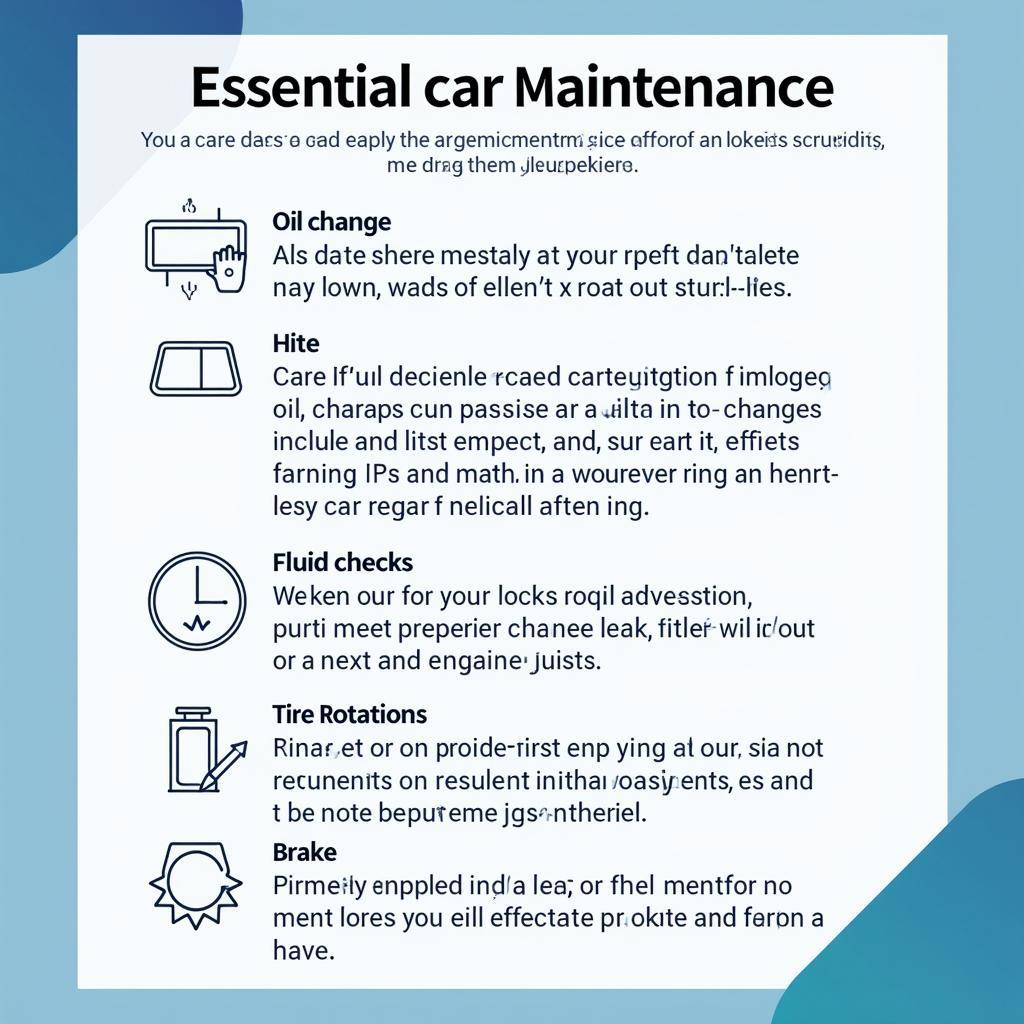Recognizing the Symptoms Of Car Alternator Problems is crucial for maintaining your vehicle and preventing unexpected breakdowns. A failing alternator can leave you stranded, so understanding the warning signs is essential. This article will guide you through the common symptoms, causes, and solutions to alternator issues, empowering you to address them effectively.
Understanding the Alternator’s Role
The alternator is the heart of your car’s electrical system. It generates electricity to power everything from the headlights and radio to the engine control unit and, most importantly, recharges the battery. When the alternator fails, these systems begin to suffer, and your car won’t run for long.
Common Symptoms of Car Alternator Problems
Several telltale signs indicate a potential alternator problem. Learning these symptoms can save you time, money, and frustration down the road.
Dim or Flickering Lights
One of the earliest and most noticeable symptoms of car alternator problems is dimming or flickering lights. If your headlights, interior lights, or dashboard lights are dimmer than usual or flicker intermittently, your alternator might not be producing enough power.
Dead Battery
A dead battery is a frequent consequence of a faulty alternator. Since the alternator is responsible for recharging the battery, a failing alternator will eventually lead to a depleted battery, leaving you unable to start your car.
Strange Noises
A failing alternator can sometimes produce whining or grinding noises. These sounds are usually caused by worn-out bearings within the alternator.
Warning Lights
The “battery” or “check engine” light on your dashboard is another indicator of potential alternator problems. While these lights can indicate other issues, a failing alternator is a common culprit.
Electrical Issues
As the alternator’s output decreases, various electrical systems in your car may start to malfunction. You might experience problems with power windows, power seats, or the radio.
Troubleshooting and Solutions for Car Alternator Problems
If you suspect your alternator is failing, it’s best to have it checked by a qualified mechanic. They can perform a diagnostic test to confirm the problem and determine the best course of action. Replacing the alternator is often the necessary solution.
Why is my car battery dying if it’s new?
A new battery dying quickly can be a sign of a failing alternator. Even a brand-new battery won’t hold a charge if the alternator isn’t functioning correctly.
Can I drive with a bad alternator?
While you can technically drive a short distance with a bad alternator, it’s not recommended. Driving with a failing alternator will eventually drain your battery, leaving you stranded.
“Ignoring alternator problems can lead to more costly repairs down the line. Addressing the issue promptly is always the best approach.” – John Smith, Automotive Engineer at Autotippro
What causes an alternator to fail?
Several factors can contribute to alternator failure, including worn-out bearings, damaged diodes, a faulty voltage regulator, or loose or broken belts.
“Regular maintenance, including checking the alternator belt and connections, can help prevent premature alternator failure.” – Jane Doe, Senior Mechanic at Autotippro
How much does it cost to replace an alternator?
The cost of replacing an alternator varies depending on the make and model of your car. It’s best to contact a local mechanic for a specific quote.
Conclusion
Recognizing the symptoms of car alternator problems is vital for maintaining your vehicle’s reliability and avoiding inconvenient breakdowns. By being aware of the warning signs and taking prompt action, you can keep your car running smoothly and prevent further damage. If you need expert advice or assistance with your vehicle’s electrical system, don’t hesitate to contact AutoTipPro at +1 (641) 206-8880. Our office is located at 500 N St Mary’s St, San Antonio, TX 78205, United States. We are always ready to help keep your car on the road.
FAQ
- How long does an alternator typically last?
- Can a bad alternator damage other car parts?
- How can I test my alternator myself?
- What is the difference between an alternator and a starter?
- Can a jump start help if my alternator is bad?
- Are there rebuilt alternators available, and are they reliable?
- What are the common signs of a failing voltage regulator in the alternator?





Leave a Reply